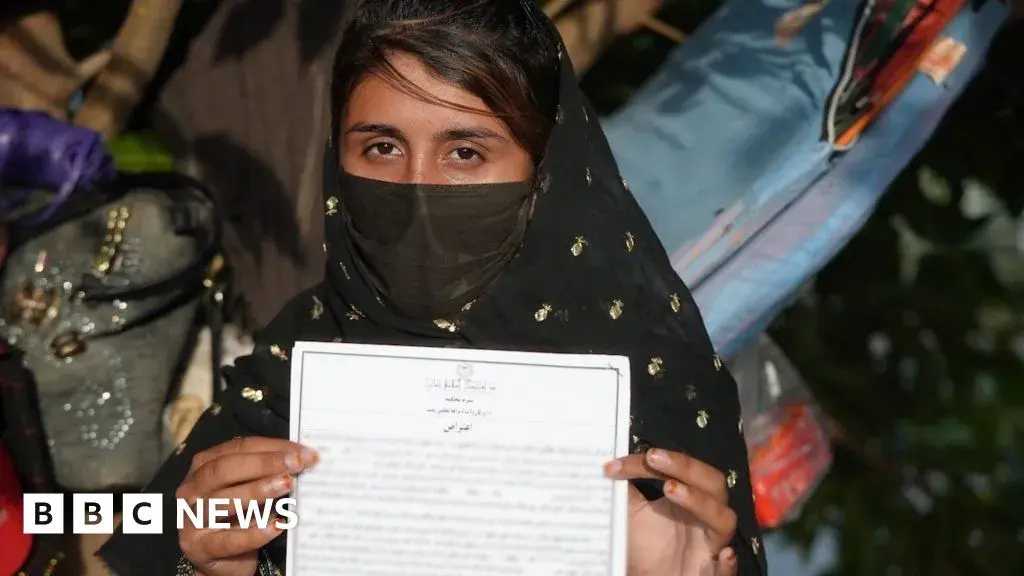- cross-posted to:
- globalnews@lemmy.zip
Bibi Nazdana [have been granted divorce] after a two-year court battle to free herself from life as a child bride [which] a Taliban court has invalidated.
Nazdana is a victim of the group’s hardline interpretation on Sharia (religious law) which has seen women effectively silenced in Afghanistan’s legal system.
Nazdana’s divorce is one of tens of thousands of court rulings revoked since the Taliban took control of the country three years ago this month. It took just 10 days from them sweeping into the capital, Kabul, for the man she was promised to at seven to ask the courts to overturn the divorce ruling she had fought so hard for.
[…]
The Taliban have also systematically removed all judges – both male and female – and replaced them with people who supported their hardline views.
Women were also declared unfit to participate in the judicial system. “Women aren’t qualified or able to judge because in our Sharia principles the judiciary work requires people with high intelligence,” says Abdulrahim Rashid, director of foreign relations and communications at Taliban’s Supreme Court.
[…]
Former Supreme Court judge Fawzia Amini - who fled the country after the Taliban returned - says there is little hope for women’s protections to improve under the law if there are no women in the courts.
“We played an important role,” she says. “For example, the Elimination of Violence against Women law in 2009 was one of our achievements. We also worked on the regulation of shelters for women, orphan guardianship and the anti-human trafficking law, to name a few.”
She also rubbishes the Taliban overturning previous rulings, like Nazdana’s.
“If a woman divorces her husband and the court documents are available as evidence then that’s final. Legal verdicts can’t change because a regime changes,” says Ms Amini.



Our species is monstrous and we deserve to be destroyed by a giant meteor.